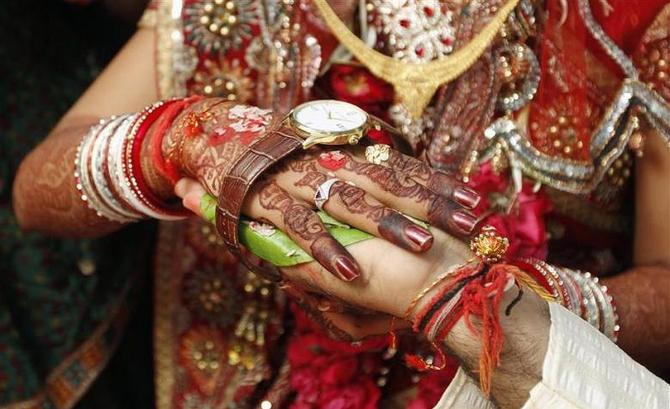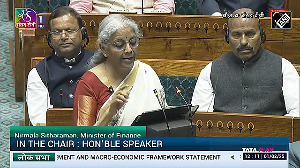Amid a row over 'love jihad', the Allahabad high court has ruled that the right to choose a life partner "irrespective of religion" is intrinsic to the right to life and personal liberty.

The bench contradicted a high court judgment in September and another in 2014 against marriages performed after alleged conversions, saying that the two rulings were not good in law.
Justices Pankaj Naqvi and Vivek Agarwal made the observations while quashing an FIR lodged by a man against his daughter's husband, whom she married after conversion to Islam.
"Interference in a personal relationship would constitute a serious encroachment into the right to freedom of choice of the two individuals," they said.
The ruling comes amid plans by Uttar Pradesh and some other state governments to enact laws to curb alleged conversions in the guise of marriage, which BJP leaders call 'love jihad'.
While allowing the writ petition by Salamat Ansari and Priyanka Kharwar alias Alia of Kushinagar, the judges cited Article 21 of the Constitution on personal liberty.
"To disregard the choice of a person who is of the age of majority would not only be antithetic to the freedom of choice of a grown up individual but would also be a threat to the concept of unity in diversity," they said.
"We do not see Priyanka Kharwar and Salamat as Hindu and Muslim, rather as two grown up individuals who out of their own free will and choice are living together peacefully and happily for over a year," the bench said.
Ansari and Priyanka Kharwar alias Alia had had sought quashing of an FIR lodged on August 25, 2019 under several sections of the Indian Penal Code, including illegal confinement and inducing a minor into sex.
The FIR had also invoked the Protection of Children from Sexual Offences Act.
The petitioners argued that they are adults and competent to choose a person of their choice as their partner.
The counsel for the woman's father argued that conversion only for sake of marriage is prohibited and such marriage has no sanctity in law.
But the court held that on attaining majority a person is statutorily conferred a right to choose a partner.
"The courts and the constitutional courts in particular are enjoined to uphold the life and liberty of an individual guaranteed under Article 21 of the Constitution of India," the ruling said.
"Right to live with a person of his/her choice irrespective of religion professed by them, is intrinsic to the right to life and personal liberty. Interference in a personal relationship would constitute a serious encroachment into the right to freedom of choice of the two individuals," it said.
The bench also referred to the Priyanshi case in September and the Noor Jahan case in 2014, in which the court ruled that conversions for the purpose of marriage are unacceptable.
It said there was no doubt that the women in the two past cases could not authenticate their alleged conversion as they were unable to show knowledge of the basic tenets of Islam.
But the courts were still obliged to ascertain the desire of the women as they were above 18.
The judges said the court had then not dealt with the issue of life and liberty of two mature individuals in choosing a partner or their right to freedom of choice about whom they would like to live with.
"We hold the judgments in Noor Jahan and Priyanshi as not laying good law," the court observed.











 © 2025
© 2025